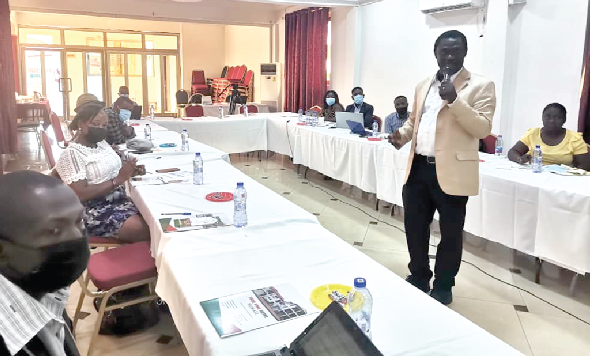
Control use of antibiotics to curb resistance — Prof. Buabeng
The Head of the Pharmacy Department of the Kwame Nkrumah University of Science and Technology (KNUST), Professor Kwame Ohene Buabeng, has called for stringent measures to control the sale and use of antibiotics to curb the rising incidence of resistance to antimicrobials.
He said the irrational and inappropriate use of antibiotics by people and their application in agriculture were the major causes of antimicrobial resistance (AMR).
Advertisement
AMR is a situation that makes the use of antibiotics ineffective when taken to fight the growth of bacteria, viruses and fungi.
According to him, close to 700,000 people died annually as a result of AMR, and that the number could rise to 10 million by 2050 if no deliberate interventions were put in place to check the misuse of the drugs.
Event
Prof. Buabeng made the call at a two-day training programme on AMR for journalists in the Ashanti Region.
It was organised by the Food and Agriculture Organisation (FAO) of the UN, in collaboration with the Ministry of Health (MoH), to educate the media on the effects of AMR and the need to create awareness of the inappropriate use of antibiotics in the country.
Regulations
Prof. Buabeng stressed the need to regulate the use of antibiotics, saying: “You can get antibiotics everywhere, including the marketplace. This is a regulation issue that has to be dealt with.”
He said even though some control structures were in place, adherence had been the main challenge.
According to him, the issue was more prevalent in low and middle-income countries, and that if the situation remained the same, it would lead to a condition where infections would become untreatable.
Prof. Buabeng said there could also be a rise in morbidity and the mortality rate from resistant infections which “makes it difficult to manage otherwise easily treatable infections. Resistant microbes are associated with poor treatment outcomes, from minor or complex surgeries, severe disability, complications and death in diabetic and other patients with chronic diseases complicated by infections”.
Widespread practice
The National AMR Coordinator at the FAO, Dr Kofi Afakye, said the abuse of antibiotics was widespread and not restricted to humans alone.
He said a study conducted in Dormaa in the Bono Region indicated that 60 per cent of poultry farmers gave antibiotics to their day-old chicks.
Dr Afakye further said not only consumers of antibiotics developed resistance; even those who did not take antibiotics also developed resistance through the consumption of animal and agricultural products that had been exposed to the drugs.
For instance, he said, about 98 per cent of poultry farmers failed to observe the withdrawal period after administering antibiotics to their birds.
A withdrawal period is the time allowed for the excretion of antibiotics out of the system of an animal before it is consumed.
According to him, the period differed from drug to drug, but he was unable to tell if the levels of AMR in those animals were detrimental to human health.
That, he explained, was because the research did not test for the content of antibiotics in the animals.



